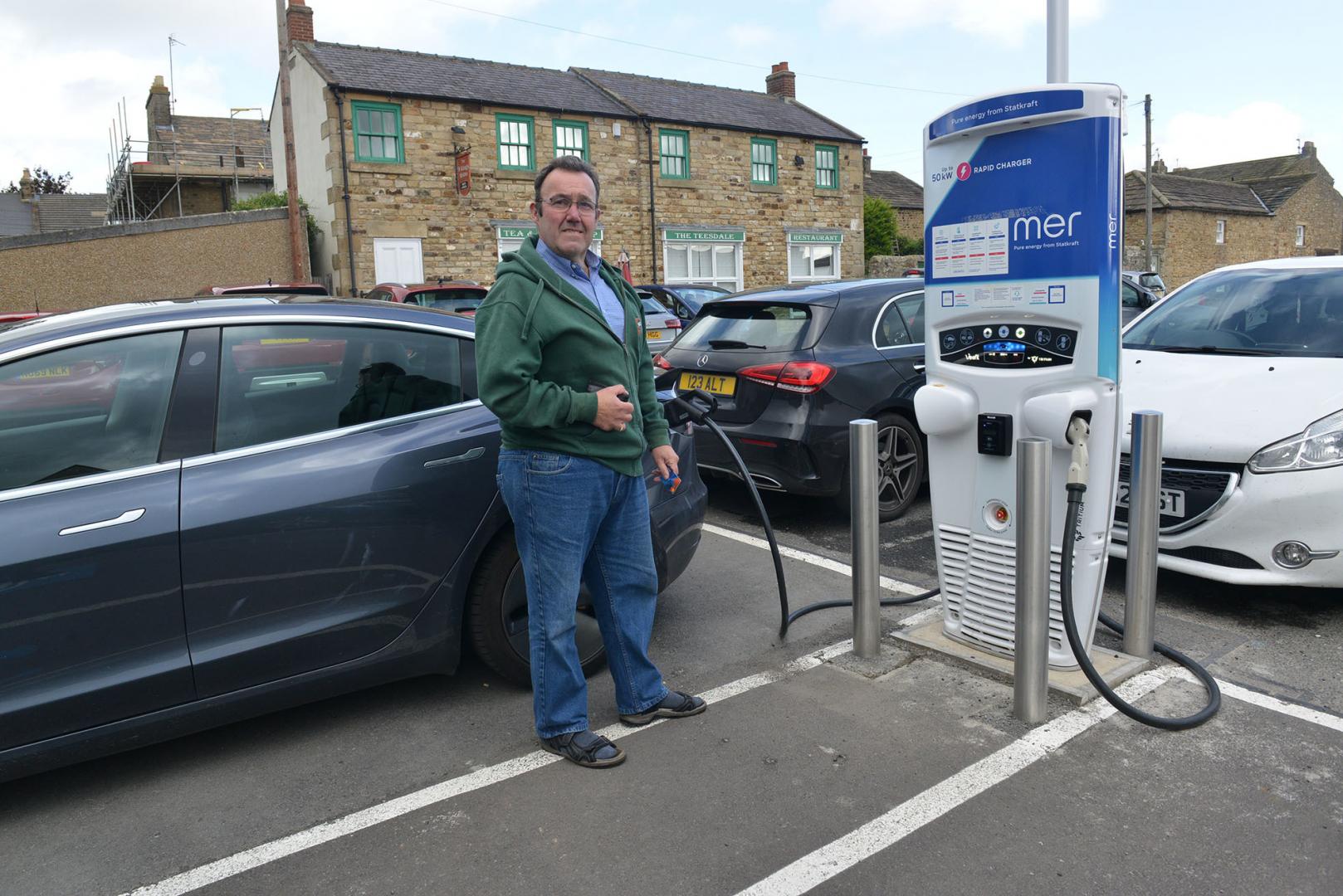COUNTY officers are being asked to investigate the use of electric vehicle charge points in Barnard Castle before more are installed across the dale.
Complaints about the cost at some points and complex ways of paying for a charge at others are among the “grumblings” that have led to the questions being raised.
Thousands of pounds of government funding have been made available to allow Durham County Council to install more charging points, particularly in rural areas.
Cllr Richard Bell, deputy leader of Durham County Council, said more data is needed before valuable parking spaces are taken up.
Even electric vehicle owners in the town are dubious of the county council installed chargers, which are in carparks near Morrisons, at the Hole-In-The-Wall off Newgate and at Teesdale Leisure Centre.
Cllr Bell said: “I have heard grumbles that the existing ones in the car park near Morrisons are barely used. While we all recognise that we have to gear up for the future, before ploughing ahead we need to ensure that we are installing the right facilities.
“I have asked officers to explain to me the usage data, and address concerns raised to me about speed, cost, inability to pay other than using a special app, and so on. Who are the target users? Residents, visitors or both?
“We can’t afford to take up precious car park spaces with inappropriate facilities.”
Businessman and town resident John Moore is an advocate of electric vehicles and recently took possession of his fourth one, a Tesla.
However, he refuses to use the ones near Morrisons on the basis that he believes it is wrong to pay to park in a “town carpark” and it is too expensive. Along with the price of a car park ticket, the user also has to pay for a charge.
He also cannot use those at the Hole-In-The-Wall or leisure centre because they do not accept standard bank cards.
He said: “Until they are contactless [using a bank card] they are about as useful as a clogs on a donkey. You have to download an app, register on the app and then load your bank details [before you can use the charger].”
Mr Moore added that the charger near Morrisons is a “rapid” type of 50kW which makes it more expensive than the others in the town which are a “fast” variety – slower than “rapid” .
He estimates it takes about 40 minutes to charge on a “rapid” charger. A “fast” charger will take about nine hours. He said: “Rapid chargers are for holidays (long distance travel) and they are dear. Rapid chargers are about the same price as using petrol.”
He added that changing to a slower “fast” charger at Morrisons would make it cheaper and would also keep visitors in the town longer and possibly spend more money locally. A fast charger is similar to a home charger, he said.
Other electric car owners in the dale have echoed those thoughts with some prefering car charging points elsewhere – such as the one at Lidl because of the issues.
Craig Sams, from Staindrop, is also an advocate for electric cars and his company EcoEnerG, installs renewable energy systems including a number of car chargers at homes and businesses.
He said: “Electric vehicles are great in terms of cash savings and the environment. If you have solar panels [at your home] it is even more fantastic because you are charging your car for free.”
He suggested residents shouldn’t be charged to use council electric car points.
Mr Moore has both solar panels and an electric storage device at his home. He fills the storage device from the mains supply in the early hours of the morning when the cost is at its lowest.
ADVERTISEMENT
Electric vehicle charging points under scrutiny
ADVERTISEMENT
ADVERTISEMENT
ADVERTISEMENT






